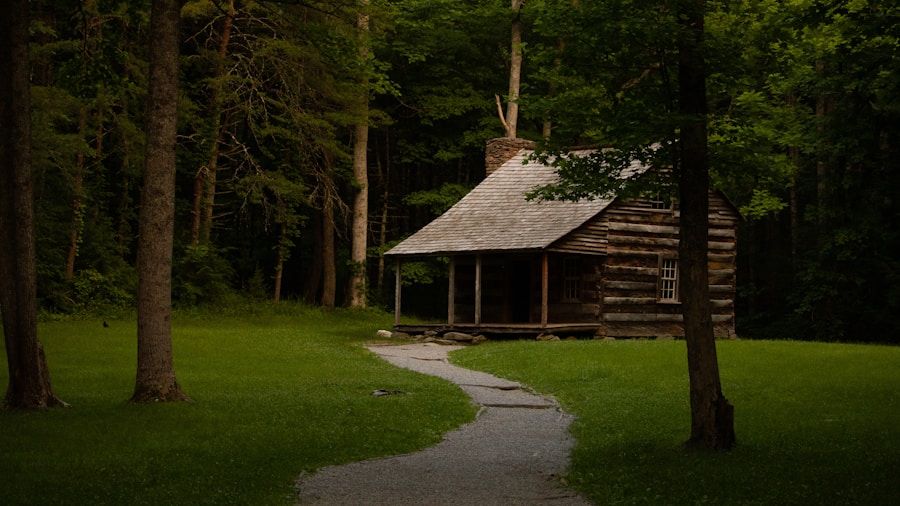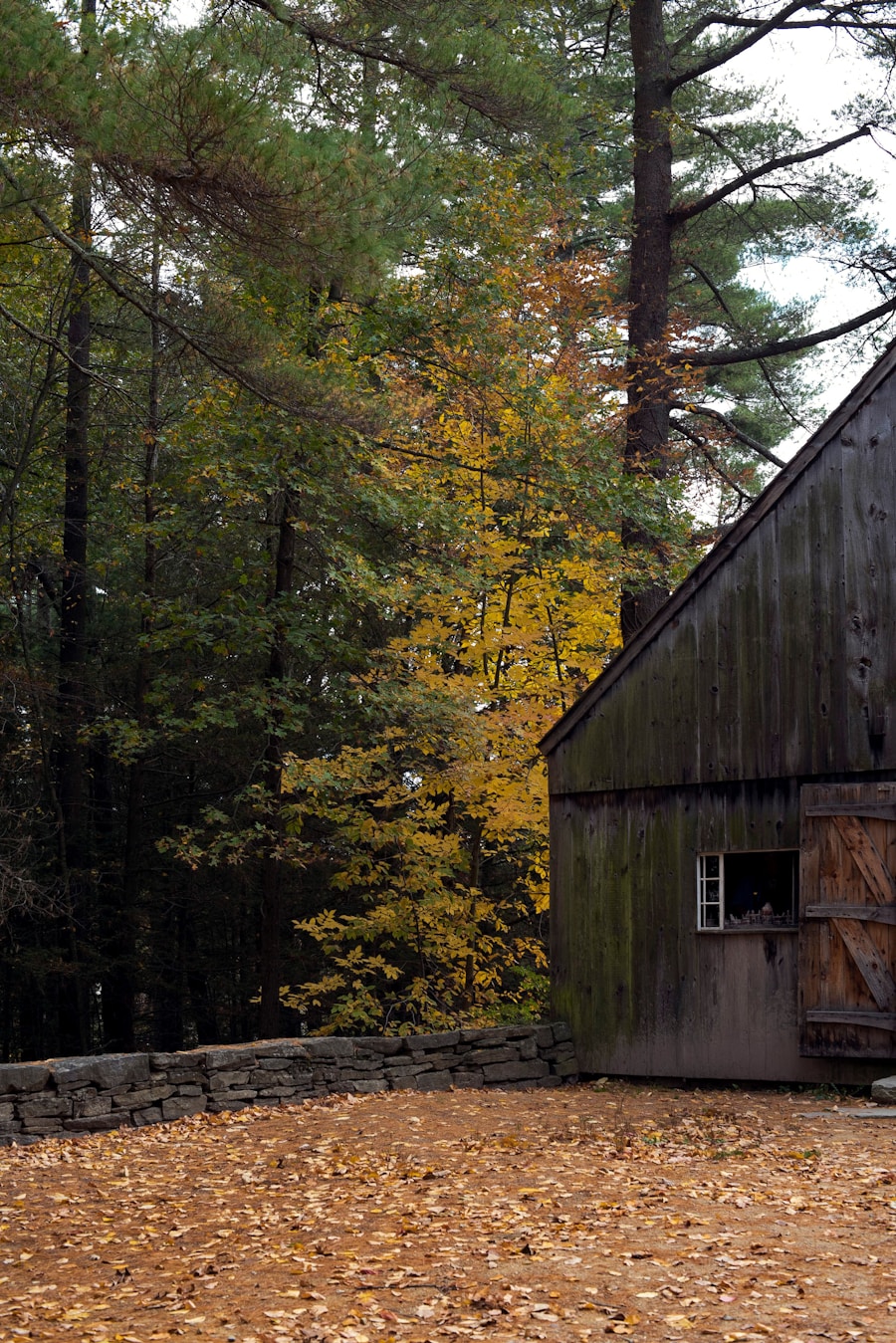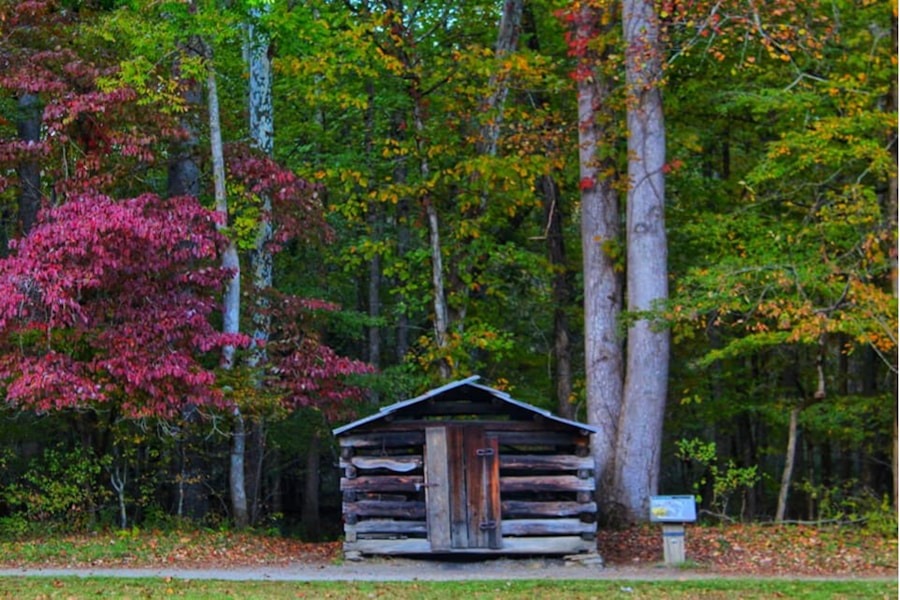Henry David Thoreau’s “Where I Lived and What I Lived For,” a chapter from his seminal work “Walden,” serves as a profound exploration of the human experience in relation to nature, society, and self. Written during his two-year experiment in simple living at Walden Pond, Thoreau’s reflections are not merely autobiographical; they are a philosophical treatise that challenges the conventions of 19th-century American life. Thoreau’s time at Walden was not just an escape from civilization but a deliberate choice to engage deeply with the essence of existence.
He sought to distill life to its most fundamental elements, stripping away the superfluous to uncover what is truly necessary for a fulfilling life. In this chapter, Thoreau articulates his motivations for living in solitude, emphasizing the importance of self-reliance and introspection. He describes his cabin, built with his own hands, as a sanctuary where he could observe the rhythms of nature and reflect on his place within it.
The simplicity of his surroundings allowed him to focus on the profound questions of life, purpose, and the human condition. Thoreau’s writing is imbued with a sense of urgency, as he implores readers to reconsider their own lives and the societal norms that dictate their choices. His call to live deliberately resonates through the ages, inviting each generation to examine the values they hold dear.
Key Takeaways
- Thoreau’s “Where I Lived, and What I Lived For” explores the idea of living deliberately and simplifying one’s life.
- Thoreau advocates for a philosophy of simplicity, emphasizing the importance of minimalism and living in harmony with nature.
- In “Where I Lived, and What I Lived For,” Thoreau encourages readers to find purpose and meaning in their lives by connecting with nature and simplifying their existence.
- Nature plays a significant role in Thoreau’s writing, inspiring his work and influencing his perspective on life and society.
- Thoreau criticizes materialism and consumerism, urging readers to prioritize spiritual and intellectual fulfillment over material possessions.
- Thoreau’s ideas on simplicity, purpose, and nature can be applied to modern life by embracing minimalism, seeking meaningful experiences, and reconnecting with the natural world.
Thoreau’s Philosophy of Simplicity
At the heart of Thoreau’s philosophy is the concept of simplicity, which he advocates as a means to achieve clarity and purpose. He argues that modern society is plagued by excess—excessive possessions, excessive noise, and excessive distractions—that cloud our understanding of what is truly important. Thoreau posits that by simplifying our lives, we can strip away the layers of complexity that inhibit our ability to connect with ourselves and the world around us.
He famously states, “Our life is frittered away by detail,” suggesting that the minutiae of daily existence often distract us from our higher aspirations. Thoreau’s approach to simplicity is not merely about reducing material possessions; it encompasses a broader philosophical stance that encourages individuals to seek authenticity in their lives. He believes that true wealth lies not in material accumulation but in the richness of experience and the depth of thought.
By living simply, Thoreau argues, one can cultivate a deeper appreciation for nature and the beauty of existence itself.
Finding Purpose in Where I Lived

In “Where I Lived and What I Lived For,” Thoreau delves into the quest for purpose, asserting that many individuals drift through life without ever truly understanding their motivations or desires. He challenges readers to confront their own lives and ask themselves what they genuinely seek. Thoreau’s time at Walden was an intentional pursuit of purpose; he sought to live deliberately and authentically, free from societal expectations.
This quest for meaning is underscored by his assertion that “the mass of men lead lives of quiet desperation,” highlighting the pervasive sense of unfulfillment that characterizes modern existence. Thoreau’s reflections on purpose are intertwined with his experiences in nature. He finds solace and inspiration in the natural world, which serves as a backdrop for his introspection.
The changing seasons, the sounds of wildlife, and the tranquility of Walden Pond all contribute to his understanding of life’s rhythms and cycles. Through this connection with nature, Thoreau discovers a sense of belonging and purpose that transcends material concerns. He encourages readers to seek their own paths, urging them to embrace solitude and reflection as tools for uncovering their true aspirations.
The Influence of Nature on Thoreau’s Writing
Nature plays a pivotal role in Thoreau’s writing, serving as both a muse and a teacher. His observations of the natural world are rich with detail and insight, reflecting his deep reverence for its beauty and complexity. Thoreau’s descriptions of the changing landscape around Walden Pond are not mere embellishments; they are integral to his philosophical explorations.
He perceives nature as a living entity that offers lessons about resilience, interconnectedness, and the cyclical nature of life. This profound relationship with nature informs his understanding of humanity’s place within the larger tapestry of existence. Thoreau’s writing is characterized by its lyrical quality, often blending poetic imagery with philosophical inquiry.
He uses nature as a lens through which to examine broader existential questions, drawing parallels between human experiences and natural phenomena. For instance, he reflects on the way trees grow and adapt to their environment, using this as a metaphor for personal growth and resilience in the face of adversity. By immersing himself in nature, Thoreau cultivates a sense of wonder that permeates his work, inviting readers to share in his appreciation for the world around them.
Thoreau’s Critique of Materialism
Thoreau’s critique of materialism is one of the most compelling aspects of “Where I Lived and What I Lived For.” He argues that society’s obsession with wealth and possessions detracts from genuine happiness and fulfillment. In his view, materialism fosters a culture of competition and comparison, leading individuals to measure their worth by their possessions rather than their character or contributions to society. Thoreau contends that this relentless pursuit of material wealth ultimately results in spiritual impoverishment.
Through his own experiment at Walden Pond, Thoreau demonstrates that a life stripped of unnecessary possessions can lead to greater contentment and clarity. He emphasizes that true richness comes from experiences—moments spent in nature, connections with others, and self-discovery—rather than from accumulating goods. His disdain for materialism is evident when he writes about the burdensome nature of possessions: “I have learned that the swiftest way to be rich is to be poor.” This radical perspective challenges readers to reconsider their values and priorities, urging them to seek fulfillment beyond consumerism.
Applying Thoreau’s Ideas to Modern Life

Thoreau’s insights remain remarkably relevant in today’s fast-paced, consumer-driven society. As individuals grapple with the pressures of modern life—ranging from financial stress to social media distractions—Thoreau’s call for simplicity and introspection offers a refreshing alternative. In an age where people often equate success with material accumulation, Thoreau’s philosophy encourages a shift toward valuing experiences over possessions.
Moreover, Thoreau’s emphasis on connecting with nature resonates strongly in contemporary discussions about mental health and well-being. As urbanization continues to encroach upon natural spaces, many individuals find solace in outdoor activities such as hiking, gardening, or simply spending time in parks.
These experiences echo Thoreau’s belief in the restorative power of nature—a reminder that stepping away from the chaos of modern life can lead to greater clarity and purpose. Incorporating Thoreau’s ideas into daily life also involves cultivating mindfulness and intentionality in one’s choices. This can mean evaluating one’s consumption habits, reducing clutter, or engaging in practices such as meditation or journaling to foster self-reflection.
By embracing these principles, individuals can create lives that are more aligned with their values and aspirations—lives that resonate with Thoreau’s vision of living deliberately and authentically. Thoreau’s legacy endures not only through his writings but also through the ongoing conversations about simplicity, purpose, and our relationship with nature. His work serves as an invitation for each generation to reflect on its values and priorities, encouraging a deeper understanding of what it means to live well in an increasingly complex world.
If you enjoyed Thoreau’s exploration of simplicity and purpose in “Where I Lived,” you may also be interested in delving into the philosophy of science. This
























+ There are no comments
Add yours